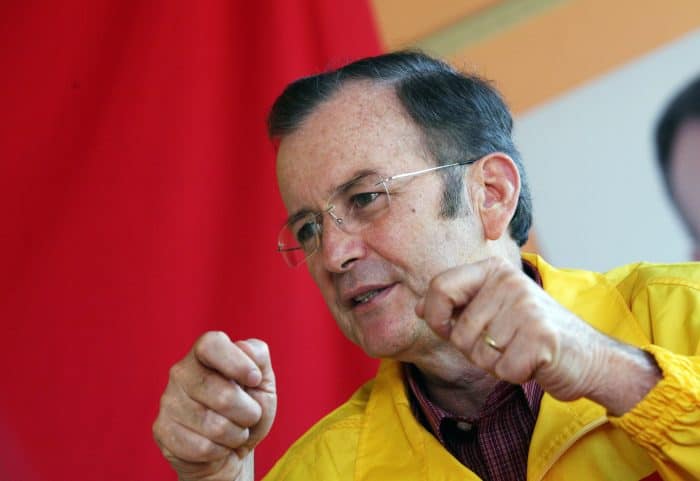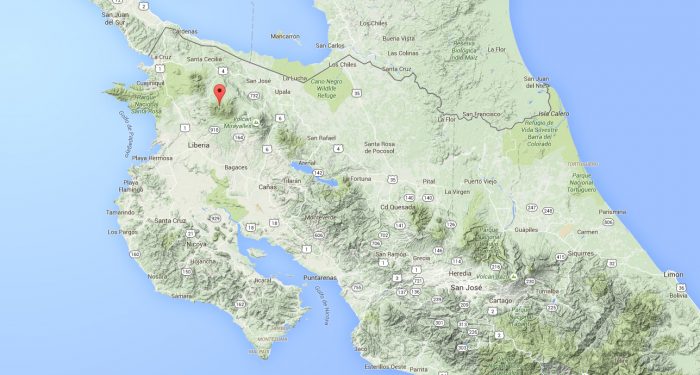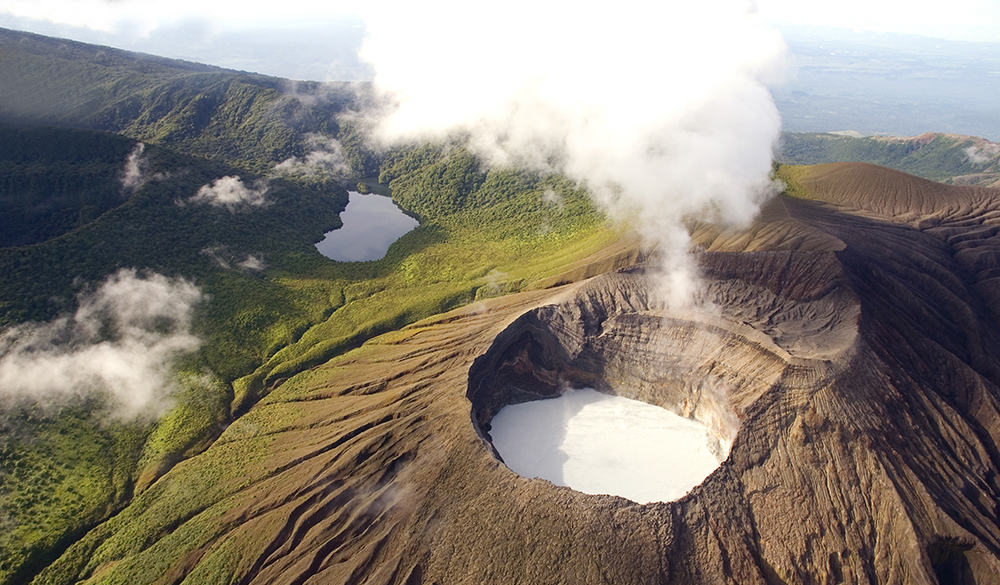Despite declarations from the executive branch that the Costa Rican government will not pursue geothermal electricity development in national parks, the office of governing Citizen Action Party (PAC) legislator Ottón Solís is working on a bill to allow it in three volcanic protected areas.
The bill would address conservationists’ concerns over exploiting Rincón de la Vieja, Tenorio and Arenal national parks by developing geothermal capacity in the parks in conjunction with the National System of Conservation Areas, or SINAC, in a way that conforms to the conservation goals of the protected areas, said Rodolfo Cordero, an aide to lawmaker Solís.
The bill would require the Costa Rica Electricity Institute, or ICE – which would develop the volcano’s geothermal electricity capacity – to compensate land used for the projects with land outside the parks.
The land would not be sequestered by ICE as initially proposed, but rather remain in the hands of the Costa Rica National Park Service, which would assure that the projects continue to protect habitat.
Conservationists have been particularly concerned about the sequestration of parkland for the precedent it would set for the entire national park system.
The new plan would substitute a bill that was shelved in May 2014 amid an outcry by conservationists over plans by ICE to sequester 1,000 hectares of land inside Rincón de la Vieja National Park in the northwestern province of Guanacaste, which as part of the Guanacaste Conservation Area was declared a UNESCO World Heritage Site in 1999.

PAC divisions?
Interestingly, the new bill would run counter to declarations by Costa Rica’s President Luis Guillermo Solís that geothermal electricity generation in national parks is not currently on the table.
The plan also would run counter to a letter written last April by Environment Vice Minister Irene Cañas to Kishore Rao, then-director of UNESCO’s World Heritage Center, in response to Roa’s letter of concern over the plan to exploit Rincón de la Vieja.
In the missive, Cañas said the bill permitting exploitation of the conservation area was conceived under the previous administration, and the Solís government gives no priority to presenting it during extraordinary session – when the executive branch sets the legislative agenda – beginning in December and running through April.
“Also, the president of the republic has repeatedly and publicly indicated that his administration has no interest in promoting geothermic exploitation in national parks,” Cañas said.
[documentcloud url=”http://www.documentcloud.org/documents/2511028-irene-canas-letter-to-kishore-rao.html” width=600 height=600 container=”#DV-viewer-2511028-irene-canas-letter-to-kishore-rao”]
Cordero said the substitute text – being prepared by a subcommittee of the Legislative Assembly’s Agriculture and Natural Resources Commission – for the bill that was shelved should be ready for the legislature’s extraordinary session.
Although the Solís administration is unlikely to present that bill during the extraordinary session, given the president’s avowed opposition to national park energy exploitation, it could be placed on the legislative docket when the 2016 ordinary session begins in April, Cordero said.
Before his death last February, park service co-founder Álvaro Ugalde, who campaigned hard against the geothermal bill, had expressed his support for projects within national parks that are compatible with the park’s conservation objectives.
“We would be stupid to say that there should be nothing, but [it should be] something minimal inside the park and in control of the park system in conjunction with ICE,” Ugalde told The Tico Times in April 2013.

Ugalde led the effort to scotch the bill based on concerns that the sequestration of land inside Rincón de la Vieja would pose an existential threat to the entire park service system by setting a precedent leading to similar moves inside other national parks.
Ugalde also complained that he had lobbied private foundations in the 1980s to fund the purchase of land in Rincón de la Vieja National Park with promises that the land would be protected in perpetuity.








